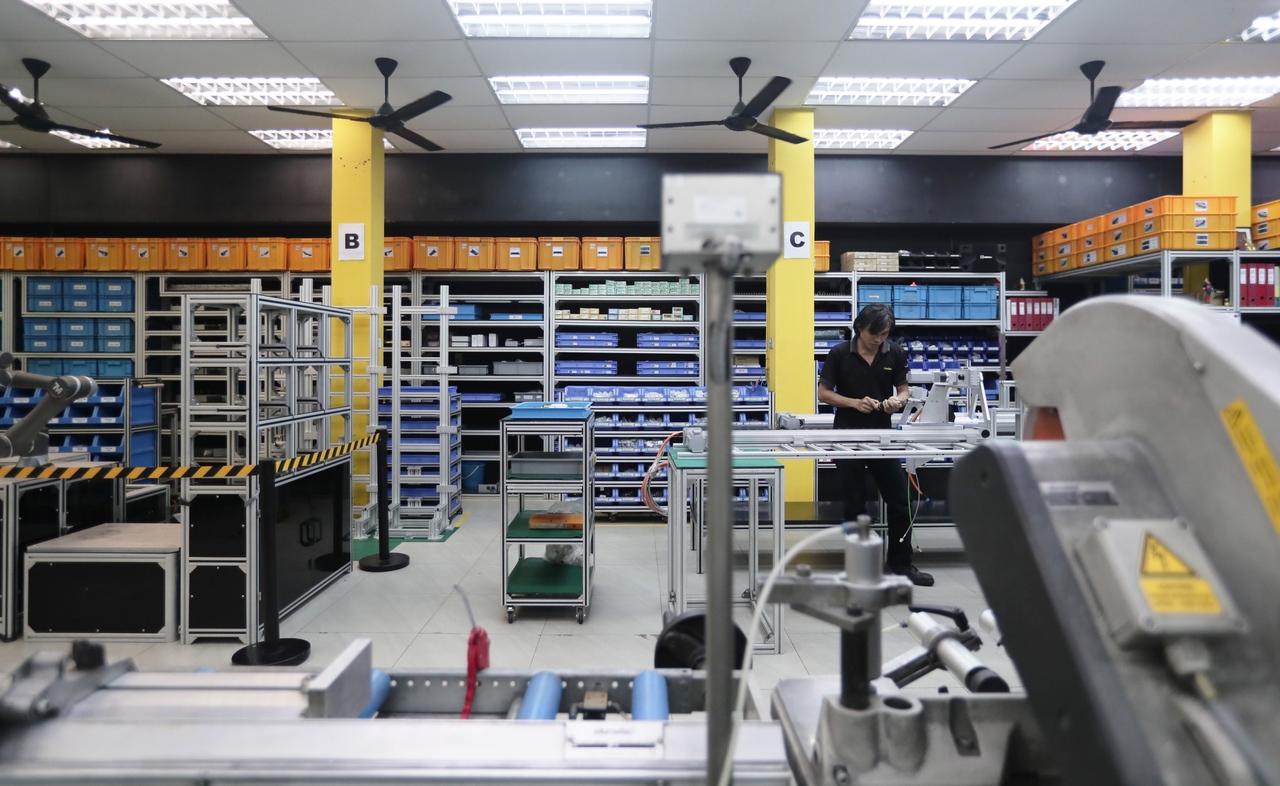Singapore PMI bounces off 11-year low but remains in contraction
Sign up now: Get ST's newsletters delivered to your inbox

This is the fourth month of contraction for the overall manufacturing sector.
PHOTO: ST FILE
Follow topic:
A gauge of manufacturing conditions in Singapore bounced off its worst level in 11 years, but remained within the contraction territory.
The Purchasing Managers' Index (PMI) was at 46.8 points last month, up 2.1 points from 44.7 in April, which was the lowest reading since November 2008 during the global financial crisis.
A reading over 50 indicates expansion, while one below 50 shows contraction.
This is the fourth month of contraction for the overall manufacturing sector, the Singapore Institute of Purchasing and Materials Management (SIPMM), which compiles the index, said yesterday.
The electronics sector PMI recorded an increase of 3.4 points from April to post a slower contraction at 46.2 - marking the fourth month of contraction.
Ms Sophia Poh, vice-president of industry engagement and development at SIPMM, said: "Despite weaker supply chain operations arising from (the) extended local circuit breaker measures, the latest improved PMI readings indicate the resilience of the local manufacturing sectors.
"Going forward, manufacturers are cautiously optimistic of a gradual recovery towards the latter half of the year."
The overall manufacturing PMI for last month reflects the first expansion in the inventory index after three consecutive contractions.
The finished goods index also expanded after shrinking for two straight months.
DBS Bank senior economist Irvin Seah said: "This is definitely the first glimmer of hope amidst an otherwise very gloomy economic climate."
The PMI rebound could be a significant turning point for the economy if subsequent non-oil domestic export and industrial production figures follow suit, Mr Seah noted.
Slower contractions were recorded for the indexes of imports, input prices and order backlog. However, supplier deliveries posted a faster rate of contraction. The employment index contracted for a fourth straight month.
United Overseas Bank economist Barnabas Gan said the manufacturing sector is still weighted down by ongoing supply chain disruptions and negative demand shocks from the Covid-19 pandemic.
The PMI readings suggest further headwinds against Singapore's manufacturing environment, with key manufacturing sectors - save for biomedical manufacturing - in the doldrums for the year ahead, he added.
Mr Gan said pharmaceutical production and exports may continue to support Singapore's overall manufacturing and trade environment.
"Singapore is well positioned to produce and export medical necessities, which implies that the pharmaceutical industry can act as a support to the overall manufacturing environment," he noted.
Mr Seah said that while the biomedical cluster is likely to support gross domestic product performance and help overall manufacturing to outperform some other sectors despite weak global demand, positive spin-offs to the rest of the economy, such as a boost to employment, are limited.
Pharmaceutical exports accounted for only 9.9 per cent of Singapore's non-oil domestic exports last year, while the biomedical cluster was weighted at just under 20 per cent of total industrial production.
Mr Gan said: "Beyond the pandemic, we would also need to account for incremental headwinds stemming from the renewed United States-China trade tensions that may intensify in the months ahead."

